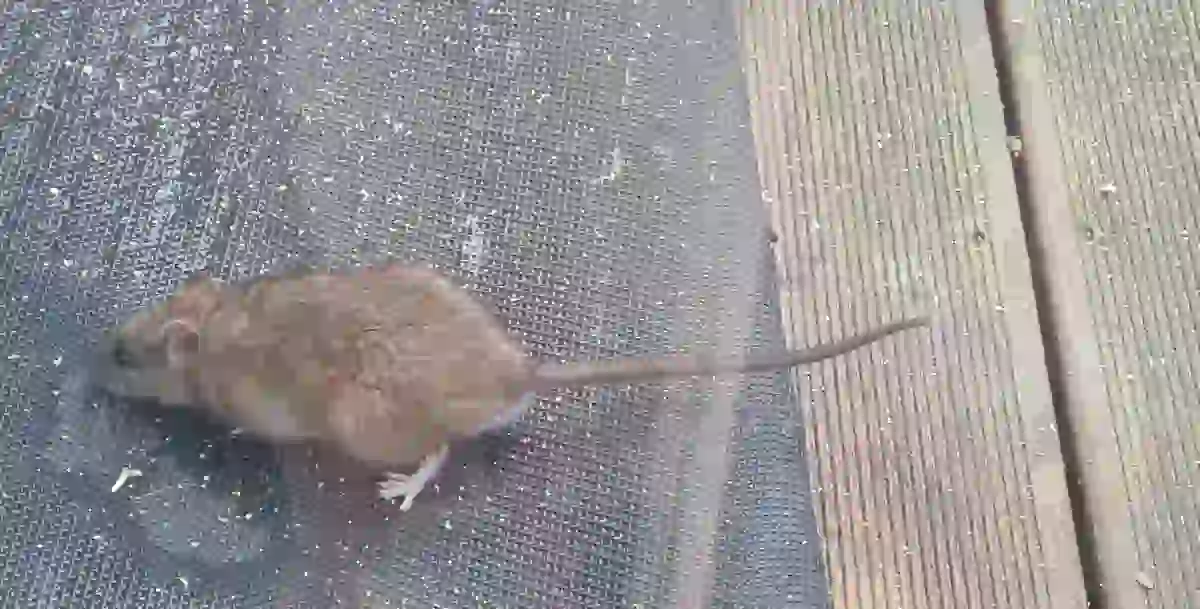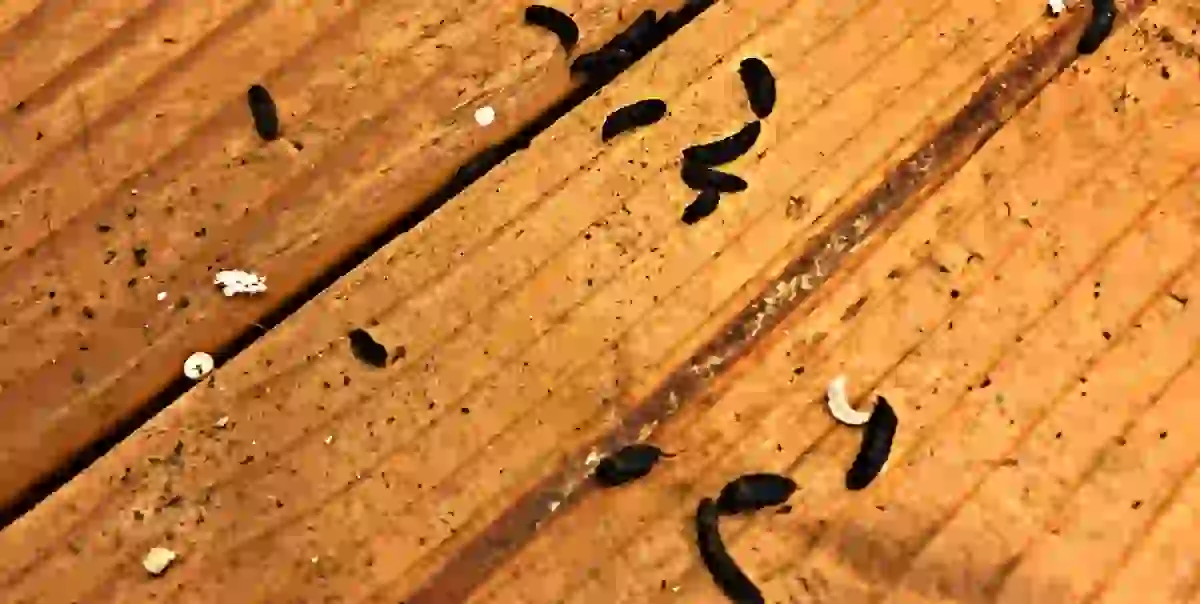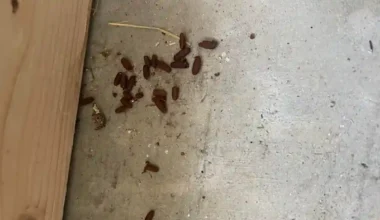Mice have, for long, turned our homes into their apartment complex. And you have reservations about using poison to get rid of them, as it may harm your pets. Fortunately, you can switch to homemade mouse poison safe for pets. But the truth is that mice cannot be killed by any poison that is safe for dogs or cats, meaning that you have to ensure some level of supervision to keep the pets away.
This simple guide covers the recipes requiring common household items you can use as both bait and poison to attract and poison a mouse.
Homemade mouse poison safe for pets

There are many pet-friendly homemade solutions out there, including salt, that you can use as your mouse poison. Below is the best homemade mouse poison safe for pets:
1. Baking soda poison
Baking soda, due to its versatility, is a common household item stored in many kitchens. In addition to its use as a cleaning agent, antacid, and leavening agent, baking soda can also serve as a surprisingly effective homemade mouse poison safe for pets.
Unlike humans, mice are unable to expel carbon dioxide, making them vulnerable to the effects of baking soda. Moreover, even though carbon dioxide is a normal component of inhaled air (0.04%) and internal sensors for CO2 levels drive respiration in most animals, labored breathing and fear have been noted in mice when inhaled CO2 levels are ~5–15%.
The bicarbonate in the baking soda reacts with the acids in the stomach of the mouse, producing carbon dioxide, which accumulates within its digestive system. This buildup eventually leads to blockages or ruptures, resulting in the death of the mouse.
Mice do not have a natural inclination to consume baking soda, so it is necessary to pair it with a more enticing food source for effectiveness.
The following items can be used as bait to attract mice to the baking soda homemade mouse poison safe for pets:
Combine with baking soda and form into balls, then place them throughout your home.
b. Cocoa powder
Chocolate is irresistible to many, including mice. Mix equal parts of cocoa powder and baking soda, then add a small amount of sugar to make it even more tempting.
While baking soda is safe for children and pets, it is not considered a humane method of extermination. This is true for most poisons.
It takes a significant amount of baking soda for it to be lethal to larger mice, which means that you may observe mice suffering and struggling in your home before succumbing to the poison.
c. Sugar and flour
Mix equal parts of sugar, flour, and baking soda and leave in a shallow dish.
2. Aspartame homemade mouse poison safe for pets
Despite being deemed safe for human consumption, studies have revealed that aspartame and its counterpart, neotame, can be harmful to the digestive gut bacteria in mice. To use aspartame as a pet-friendly mouse poison:
- Mix 1 packet of the sweetener into a teaspoon of peanut butter.
- Roll the mixture into two equal-sized balls and place them in areas where mice are present.
The irresistible aroma of peanut butter will attract the mice, causing them to ingest the mixture and ultimately resulting in their death.
If you are concerned about speedy results, consider pairing aspartame with a quicker-acting substance, such as instant mashed potatoes.
3. Salt
You can get rid of mice with salt, but it’s a fairly difficult process. A mouse will die if it consumes excessive salt and does not have access to water.
Salt is a safe, pet-friendly, and homemade solution for controlling mice in your garden or home. It’s non-toxic to humans and pets and potent enough to swiftly eliminate mice.
4. Cement mix poison
Although not commonly found in every household, this substance can be easily obtained and highly effective in eliminating mice if they are enticed to consume it. Once ingested, the mixture will quickly solidify in the mouse’s digestive fluids.
For this homemade mouse poison to be effective, combine it with an attractive substance such as peanut butter or cocoa powder. Peanut butter is particularly effective as it makes the mixture pliable, allowing it to be shaped into balls and placed in locations with mice activity around your home.
5. Instant mashed potato flakes
Instant mashed potatoes are more toxic than nourishing, and it appears that this is the case for mice at least. So, it’s the homemade mouse poison safe for pets that you need to control mice in your home.
This strategy for eliminating mice is one of the safest and pet-friendly options out there for dogs, cats, etc. Why it is safe is that your pets would not be interested in a bowl of instant mashed potato flakes but mice seem to have no qualms about consuming a mouthful.
After eating the instant mashed potatoes, mice in your home will experience intense thirst. As they drink water, the mashed potato flakes in their stomach will expand, leading to their death.
To increase the attractiveness of your instant mashed potato poison on mice, sprinkle a packet of artificial sweetener over the flakes to encourage them to eat a sufficient amount of the substance.
6. Vitamin D-3
While Vitamin D plays a crucial role in human health, it can be deadly to other animals, including mice. The active ingredient, cholecalciferol, is present in many Vitamin D-3 supplements and a wide range of rodent poisons.
Vitamin D-3 is a potent poison that leads to a rapid increase in calcium and phosphorus levels in the mouse’s body, resulting in kidney failure, heart issues, and bleeding. Its effectiveness has led to its development as a spray to combat New Zealand’s super rats.
While it may be tempting to consider vitamins as relatively harmless substances, Vitamin D-3 can be toxic, and excessive vitamin D can lead to kidney failure and even death, according to the FDA. So, try keeping your dogs, cats, and children away.
7. Poison with plaster of Paris
In place of cement mix, you can use plaster of Paris as a suitable alternative for homemade mouse poison safe for pets. Another option is to mix plaster of Paris or cement mix with cornflour and form a dough by adding milk or water. Knead the mixture for a minute or two before shaping it into balls and placing them around the house.
Both the cement mix and plaster of Paris will harden over a few days of exposure to the environment and must be regularly replaced to be effective.
Can you really get rid of mice without harming pets?
Mice cannot be killed by any poison that is safe for dogs or cats. However, most rodenticides are designed to be attractive to dogs. Nevertheless, studies have demonstrated that dogs need to consume a significant amount of anticoagulant rodenticide to become sick. Additionally, anticoagulant poisoning can be reversed with vitamin K treatment, whereas other types of poison cannot. The solution to this problem is straightforward:
- Always keep the rodenticide in a pet-proof station. These stations are readily available, and loose blocks should never be scattered around.
- Dispose of any poisoned rodents found and make sure to pick them up.
- 3Choose an anticoagulant rodenticide and avoid acute poisons like bromethalin and cholecalciferol. I recommend using Final Blox or Generation Mini, both of which contain 2nd generation anticoagulant actives.
- Limit the number of stations and the amount of bait to minimize the quantity of rodenticide available at any given time.
- Always use block-type formulations rather than pellets or meals since rodents can easily transport pellets and meals to areas accessible to pets. Blocks, on the other hand, are attached to pins or rods in the station and must be chewed off.
Conclusion
Many of these DIY mouse poison recipes can effectively reduce the mouse population. Some, like instant mashed potato flakes, are even safe to use around pets and pose less harm to wild birds and animals.
While these methods may not be particularly kind to the mice, if you’re seeking a more humane approach to address a mouse invasion, consider practicing measures such as storing food in airtight containers and eliminating all mice water and food sources to discourage them from infesting your home.






